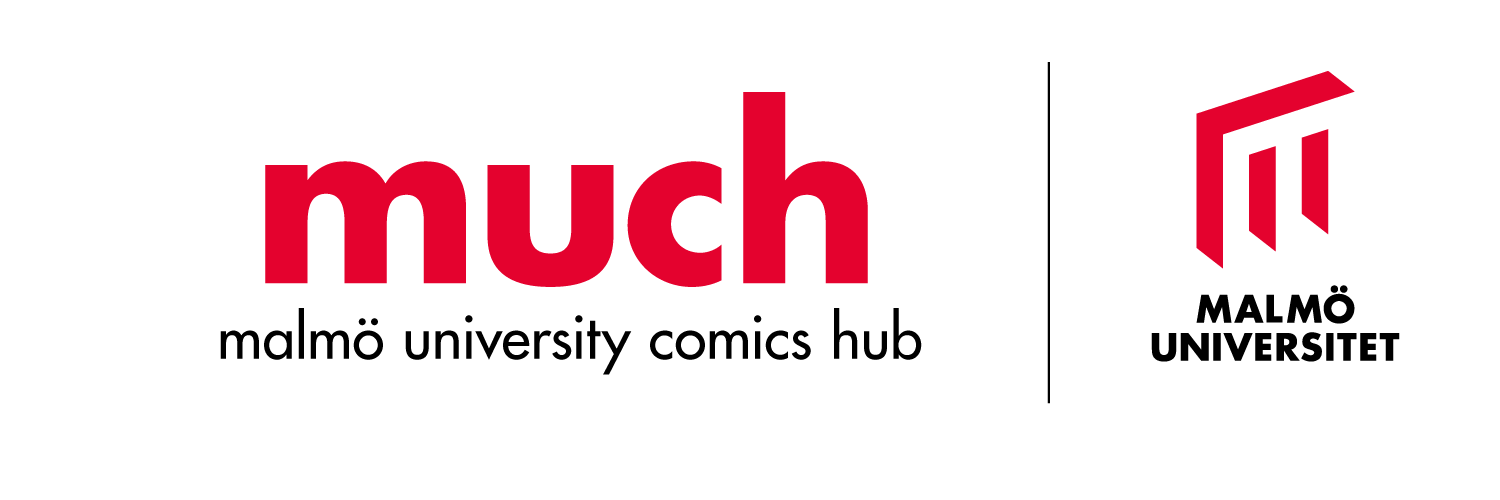A one-day multidisciplinary conference on the future of comics, technology, and creativity
If you prefer a PDF of this text, you can download it from https://doi.org/10.6084/m9.figshare.29069522
Thursday, 4 September 2025 | 10am–6pm | City St George’s, University of London
200-word abstract submission deadline: 10 July 2025
Please send your 200-word abstract and brief bio (max 100 words) to Ernesto.Priego.1@citystgeorges.ac.uk
“What is creativity? Or rather, how do you define it, from your vantage point of the ghost in the machine? […] Who is the artist anyway?”
-Dave McKean, in Prompt: Conversations with Artificial Intelligence (2023)
We invite 200-word abstracts for “Comics & AI: Critical Prompts”, a one-day, in-person conference that seeks to prompt critical explorations of the creative, critical, technical, and speculative intersections of comics and artificial intelligence (generative AI in particular).
We welcome expert contributions from scholars, technologists, designers, comics authors, and practitioners across disciplines. This conference seeks to prompt specialised dialogue, experimentation, and critical reflection on how comics and AI shape—and unsettle—each other.
Context
Everybody is talking about AI. In comics circles, as in other creative fields and industries, the use of artificial intelligence remains controversial. What is exciting for some is worrying and even angering for many others. Recent academic research on generative artificial intelligence (Gen AI) in different disciplines continues to raise important questions that may appear alien to the media-specificity of Comics Studies proper. Developments in computer vision and pattern recognition, including AI-driven visualisation techniques and automated design systems, gesture toward potential applications in comics but rarely engage with the medium’s specific aesthetic or sociocultural dimensions (Heidrich & Schreiber 2024; Ye et al. 2024). Human-computer interaction (HCI) research has proposed AI-assisted storytelling tools aimed at fostering creativity and literacy, generative character design platforms and other tools and strategies, yet the majority of these projects often prioritise technical feasibility over cultural or narrative analysis (Fan et al. 2025; Leong et al. 2025). Other fields, such as library science and pedagogy, have begun to explore the role of comics in science communication and inclusive education as a tool for AI literacy (Stoyanovich et al. 2025), while some comics-specific approaches have questioned AI-generated comics for science communication (Zhao & Zhuang 2025).
Broader debates in computer vision, media technology, multimedia computing, and interactive media have examined AI’s implications for film, co-creation, and narrative experimentation, offering potentially useful models but little direct engagement with comics as a distinct medium (Zhang et al. 2025; Arif et al. 2024; Hutson & Smith 2025; Antony & Huang 2025; Liu et al. 2024). Multidisciplinary theoretical works on AI and aesthetics, such as Artificial Aesthetics: Generative AI, Art and Visual Media (Manovich & Arielli 2024) and The Routledge Companion to AI and Literature (Slocombe & Liveley 2023) address key questions about creativity, ethics, and cultural change, yet comics appear only peripherally within these frameworks.
These diverse strands of research highlight the growing relevance of AI across mostly STEM disciplines. Yet the application of generative AI within Comics Studies remains notably underexplored. This opens opportunities for future work, particularly in bridging disciplinary divides and examining more widely how AI can expand the boundaries of visual storytelling, unsettle the practice of authorship and collaboration, and challenge conventional notions of creativity and readership within comics. Expert multidisciplinary engagement will be essential to avoid uncritical celebrations of technological novelty, and Comics Studies can play a vital role in questioning the cultural, ethical, and labour implications of AI while also exploring its creative possibilities. By balancing innovation with reflection, the field can position itself as an important voice in the wider conversation about AI and culture.
We encourage proposals in a range of formats:
• 20-minute papers
• discussion panels
• artist’s talks/demos
Accepted scholarly presentations will be considered for inclusion in a collected edition.
Topics of interest include (but are not limited to):
• Close engagement with LLMs and generative systems (e.g., ChatGPT, Midjourney, Stable Diffusion, DALL·E) in the context of comics creation, distribution and consumption
• AI, comics, and human-computer interaction
• Copyright, authorship, plagiarism, and legal questions
• Creativity (including lack of creativity) in computing and the arts
• Bias, discrimination, and ethical challenges in AI comics outputs
• Environmental and human costs of AI
• Rejection or opposition to AI and its reasons and consequences
• Impacts on style, genre, and creativity
• Philosophical, historical, and user/reader-centred approaches
• Insights from developers, designers, artists, and publishers
• AI as comics creator, collaborator
• Practical intersections between AI and Webcomics
• AI’s impact on comics publishing, circulation, and readership
• AI and accessibility, digitisation, transcription, description
• Fan cultures, remixing, and generative comics
• Readers’ reactions to use of AI in comics
• AI as comics infrastructure
• Accessibility, disability, and AI tools in comics-making
We welcome experimental, speculative, and work-in-progress contributions.
Key Dates and Registration
Abstract submission deadline: 10 July 2025
Notification of acceptance: 1 August 2025
Registration deadline: 15 August 2025
Register here.
Registration fees:
£15 — academics/professionals
£5 — students/unwaged
Please send your 200-word abstract and brief bio (max 100 words) to Ernesto.Priego.1@citystgeorges.ac.uk
Let’s rethink comics + AI together!
